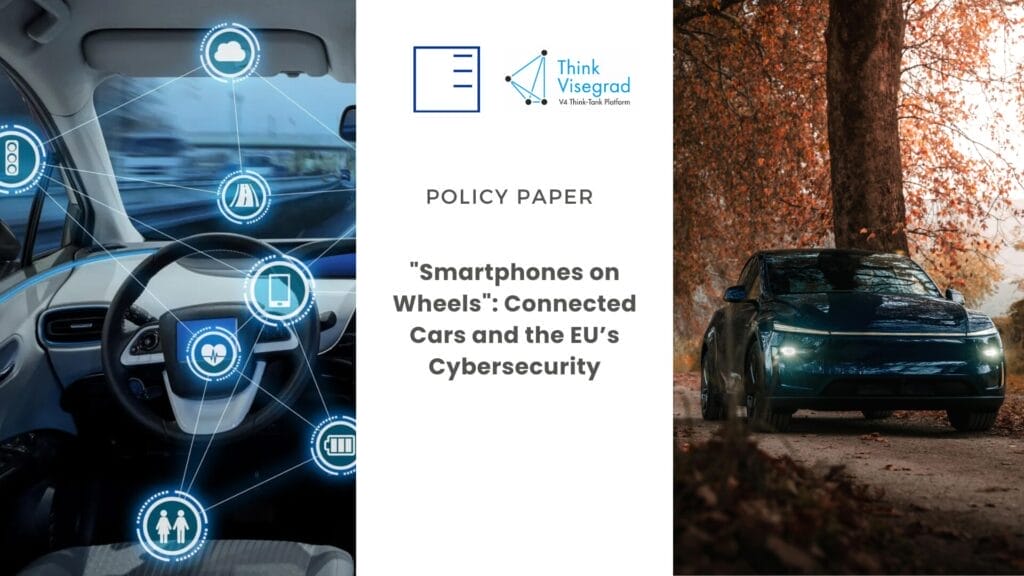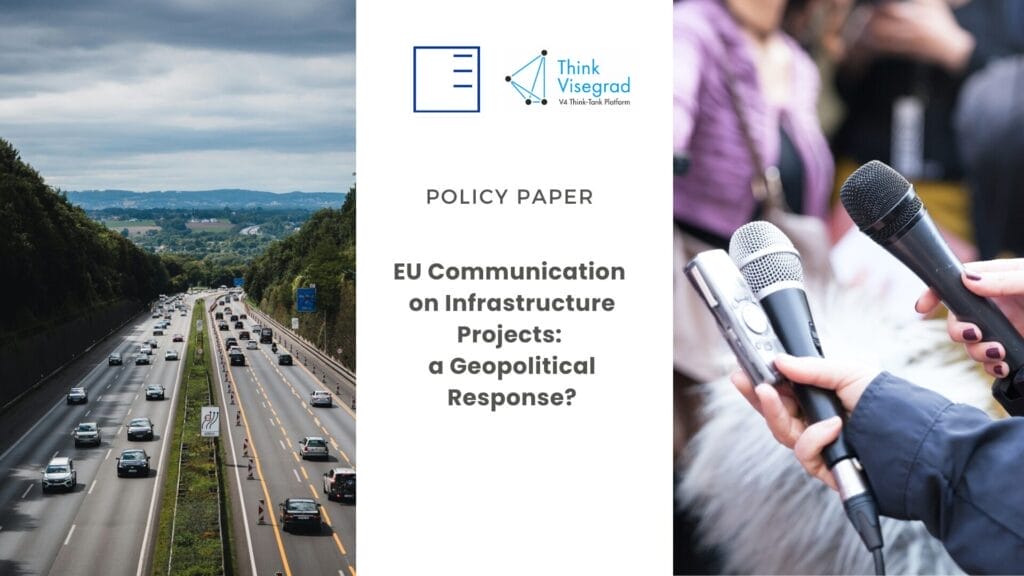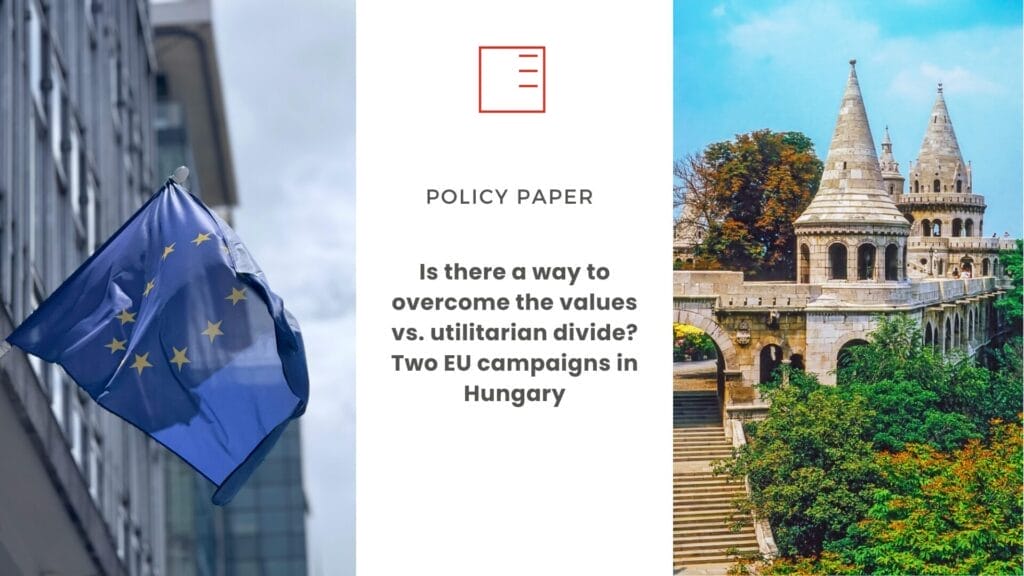Articles and Publications
In this section you can find all the publications of EUROPEUM staff and collaborators. Press releases can be found in the About us section.
Report | EU Enlargement under Geopolitical Pressure: Security Challenges and External Influence in the Western Balkans
How are geopolitical shifts reshaping the prospects for European Union enlargement in the Western Balkans? This report summarizes an expert discussion on the evolution of EU enlargement policy in the Western Balkans in the context of a changing security environment and the growing influence of external actors. The discussion highlights that, following Russia’s invasion of Ukraine, enlargement has become not only a technical, conditionality-based process but also a strategic instrument of European security. Participants pointed to uneven progress among Western Balkan countries, persistent challenges related to the rule of law and democratic reforms, and the increasing influence of external actors, particularly Russia and China. The publication also emphasises the need to preserve the principle of merit-based conditionality, strengthen gradual integration through tangible benefits for citizens, and improve the EU’s strategic communication towards local societies. A key conclusion is that the credibility and success of enlargement will depend on the EU’s ability to balance geopolitical urgency with sustained support for the region’s democratic transformation.

Report | Revision of Price Safeguards in the ETS2 System
This briefing document maps the current state of negotiations regarding changes to the ETS2 emission allowance system proposed by the European Commission. The text is based on an expert roundtable discussion held on January 16, 2026. The discussion was attended by representatives of the European Parliament and the Commission, experts from Czech ministries, employer associations, companies, and regional organizations, as well as specialists from the non-profit sector, research institutes, and academia. The primary objective of this material is to bring necessary expert depth to the debate on the future form of ETS2 and to help the public and key stakeholders better navigate this complex topic, which will fundamentally affect not only household budgets but also key economic sectors. The authors of the text are our research fellow Rebeka Hengalová, analyst Kateřina Kolouch Grabovská (Fakta o klimatu), and researcher Tomáš Protivínský (IDEA at CERGE-EI).

Policy Paper | From REARMing to SAFEty: Defence Capability Development Trends of the V4
As the European Union has significantly stepped up its political, institutional, and financial support for strengthening defence capabilities across the Union in recent years, the paper examines how the V4 countries rely on the levers of the “Europeanisation” of defence—particularly through European funds and frameworks for defence industry development. This aspect gains particular importance in early 2025, when the European Commission will assess national programmes submitted under the Security Action for Europe (SAFE) initiative for joint loan financing and decide on the allocation of funding for joint production, research, and development projects across European and partner defence industries, writes Tamás Csiki Varga in his policy paper.

Policy paper | After USAID: What Does Czech Experience Show about Europe’s Ukraine A
Europe is closing out 2025 in the same strategic debate that defined its beginning, albeit now under conditions of significantly heightened uncertainty and tension. The continent is striving to define its own strategic autonomy while simultaneously seeking a response to the diplomatic “blitzkrieg” coming from Washington, even as decisions are still being made on the terms of a just peace in Ukraine and on the future security architecture of the wider European space. Rather than actively shaping its own framework for the post-war order, however, the European Union is increasingly confined to a reactive role, write Eva Rybková and Maria Gorbatova.

Policy Paper | 2025: New Frontrunners and Laggers in the EU Enlargement Process
The 2025 Enlargement Package highlights a clear distinction that has emerged in recent years between countries advancing on their EU accession paths through the adoption and implementation of reforms and those falling behind for various reasons. For a long time, the EU has applied a regional approach to the Western Balkans and Eastern Europe (the “Associated Trio”). It has now become evident that a more nuanced approach is necessary, as disparities are growing both among countries and within the two enlargement regions, writes Jana Faktor Juzová.

Policy Paper | "Smartphones on Wheels": Connected Cars and the EU’s Cybersecurity
The increasing presence of Chinese connected vehicles on the European market has heightened concerns about cybersecurity risks, particularly regarding their potential use for surveillance, espionage, and cyber operations. Discussions on this issue frequently draw on regulatory approaches and risk assessments developed elsewhere, most notably in the United States. Yet China itself has established one of the most comprehensive regulatory and technical standardisation frameworks for connected vehicles worldwide, writes Paulina Uznaska.

Blog | Affected by the Grey Digital Divide: How Digital Exclusion Prevents Older People from Accessing eHealth in Czechia
In this blog post, EUROPEUM intern Emma Šílová examines how digital exclusion continues to limit older people’s access to eHealth services in Czechia. Drawing on national data, EU and national strategies, and recent reforms in healthcare digitalisation, the article explores the barriers faced by older adults when accessing eHealth services, assesses Czechia’s performance in eHealth inclusion, and outlines policy recommendations to ensure that the digital transition in healthcare does not leave seniors behind.

Policy Paper | EU Communication on Infrastructure Projects: a Geopolitical Response?
As there is a shifting trend towards a geopolitical framing of several EU-related policy areas, such as enlargement, agriculture and energy, a geopolitical turn in EU public diplomacy is an approach one must also contemplate in the highly competitive communication environment of today, writes Oszkár Roginer-Hofmeister. He argues that to tackle the challenges from Russia, China, and more recently the US, the EU is making an effort to rebrand itself as a geopolitical actor. Find out more in Oszkár’s text below.

Policy Paper | Is There a Way to Overcome the Values vs. Utilitarian Divide? Two EU Campaigns in Hungary
Is it possible, in an environment of growing Euroscepticism and media polarisation, to connect the European Union’s value-based language with a utilitarian understanding of its role? Drawing on two EU communication campaigns in Hungary conducted in 2024–2025, the text examines this tension and shows that the clash between the EU’s normative framing and the Hungarian government’s transactional, sovereignty-centred narrative is not merely a matter of messaging, but a structural feature of the domestic political and media landscape. The analysis suggests that isolated campaigns have only limited capacity to shift public attitudes in such a hostile and saturated information environment.

Report | From Partner to Rival: How Should Europe Respond to China’s Growing Influence?
On December 9th, the Brussels Office of the EUROPEUM Institute, representing the Visegrad Platform, in collaboration with MEP Miriam Lexmann and her office, organised a roundtable discussion titled ‘From Partner to Rival: How Should Europe Respond to China’s Growing Influence?’. The event aimed to explore how shifts in EU–China relations, driven by deepening strategic rivalry, economic pressures, and geopolitical uncertainty, are reshaping the EU’s strategic direction.

Policy Paper | Between Control and Contradiction: The V4 in the Age of the EU Migration Pact and Labour Shortages
Since the 2015 migration crisis, the Visegrád Four (V4) countries – Poland, Hungary, Czechia, and Slovakia – have adopted strongly securitised migration narratives focused on control, sovereignty, and national identity. Although the region faces only minimal migratory pressure, migration remains a key political issue, often invoked during elections and EU-level negotiations.
Yet this narrative of exceptional threat contrasts with the V4’s growing dependence on legal labour migration from third countries, driven by shrinking working-age populations, structural labour shortages, and low wages in key sectors. This paper examines these contradictions and governance gaps, focusing on the tension between securitised political discourse and economic reality.

Report | Prospects for the EU Enlargement in the Western Balkans: A Missed Opportunity or a Strategic Turning Point?
On October 1st, the Brussels Office of the EUROPEUM Institute, representing the Visegrad Platform, opened the month with an expert roundtable discussion titled “Prospects for the EU Enlargement in the Western Balkans: A Missed Opportunity or a Strategic Turning Point?” The event explored the achievements, shortcomings, and future outlook of the EU enlargement process in the Western Balkans, while promoting an open dialogue among leading experts and policymakers in the field.